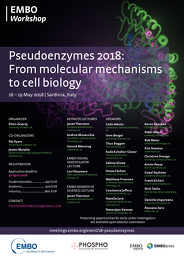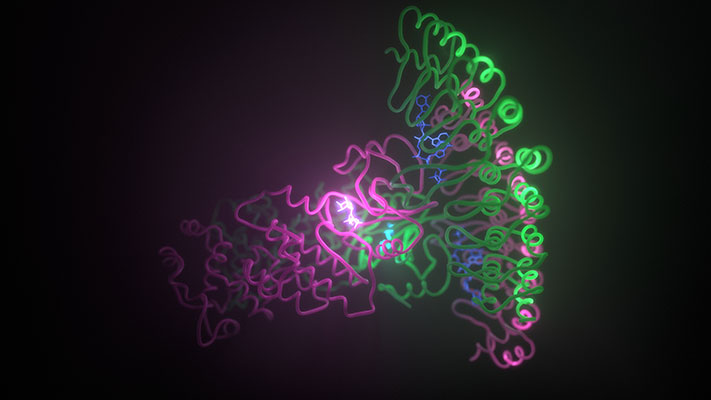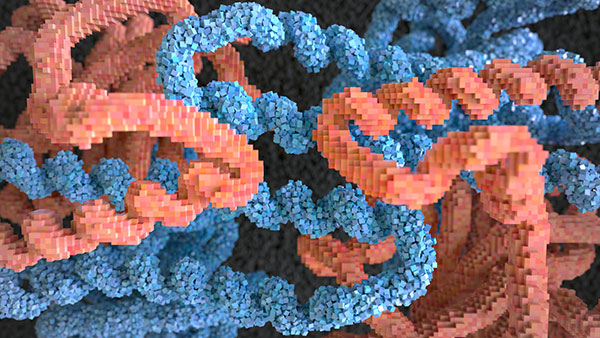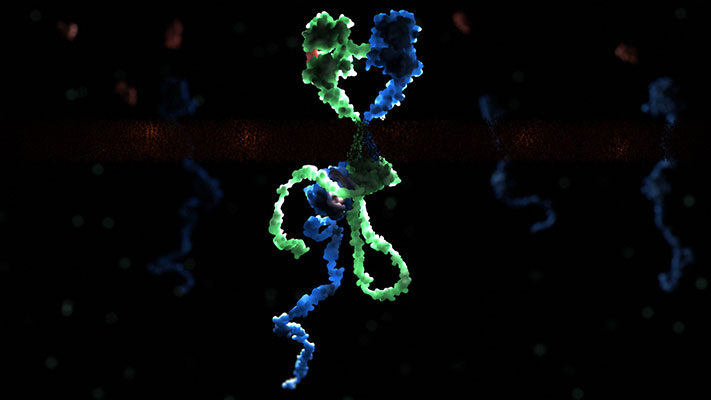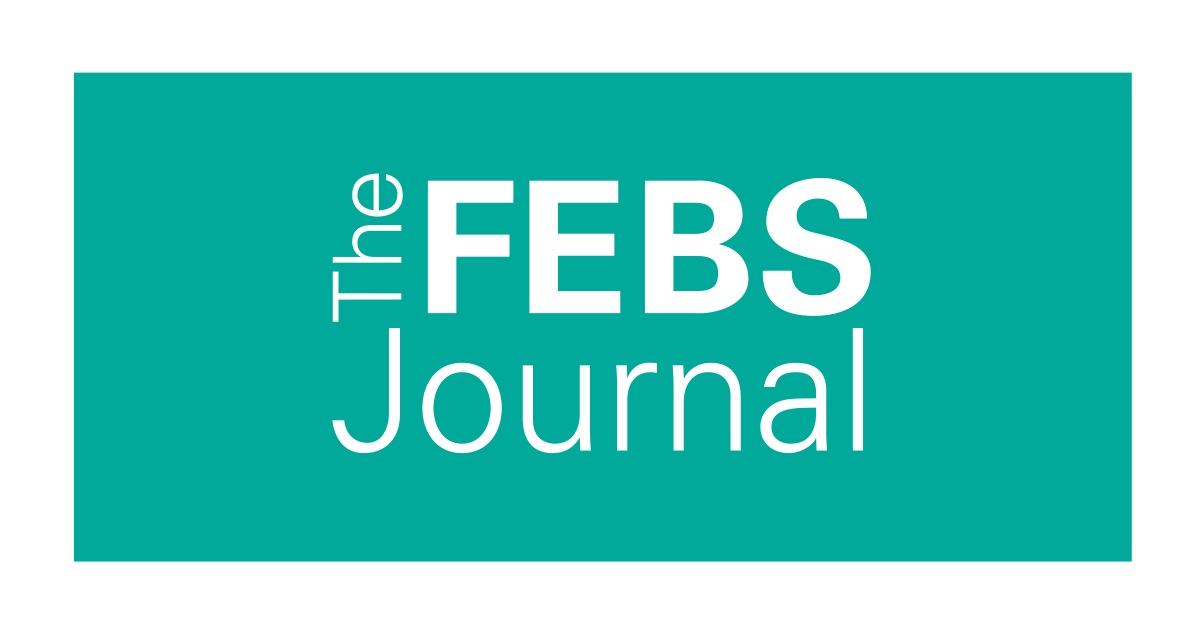About the Workshop
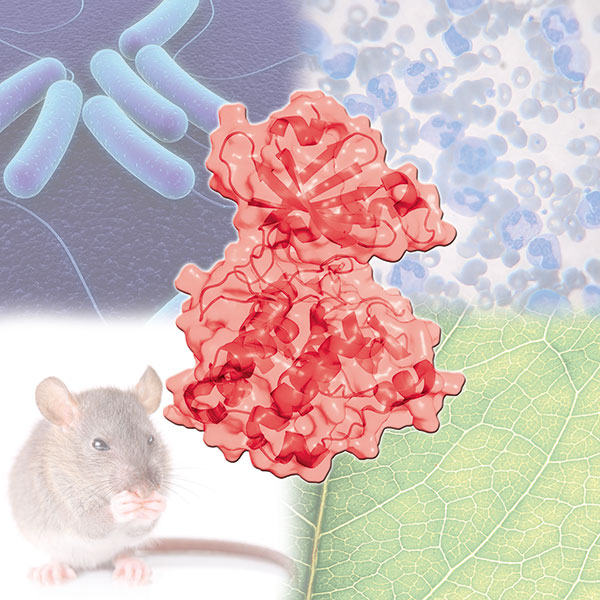 The last decade has seen a surge in studies showing how pseudoenzymes (enzymes predicted to lack catalytic activity) employ innovative and unexpected mechanisms to regulate biological functions. Pseudoenzymes act in diverse ways, including by allosterically activating conventional enzymes, acting as scaffolds for signalling complex assembly, and as molecular switches.
The last decade has seen a surge in studies showing how pseudoenzymes (enzymes predicted to lack catalytic activity) employ innovative and unexpected mechanisms to regulate biological functions. Pseudoenzymes act in diverse ways, including by allosterically activating conventional enzymes, acting as scaffolds for signalling complex assembly, and as molecular switches.
The best-studied pseudoenzymes are pseudokinases, although examples from other enzyme families, such as pseudophosphatases, pseudoproteases, pseudo-E2 ubiquitin ligases, pseudo-deubiquitinases (pseudo-DUBs) and pseudo-GTPases, are emerging at a fast rate. It is now clear that almost every enzyme family contains some inactive “rogue” members. While the precise number may vary depending on the enzyme class, it is reasonable to expect that 5-10% of genes in each enzyme family will turn out to be inactive pseudoenzymes.
Many pseudoenzymes are essential regulators of biological processes and because of their widespread occurrence, pseudoenzymes have garnered the interest of bioinformaticians, structural biochemists, cell biologists, chemists and clinicians. Detailed studies of pseudoenzymes have advanced our knowledge of how they perform non-catalytic functions, and unexpectedly, they have also provided insights on the functional aspects of their active counterparts.
An interesting twist on the emergence of important signalling roles for pseudoenzymes is that that their functions can be modulated by small-molecule compounds. As such, pseudoenzymes provide additional disease targets for therapeutic intervention.
To celebrate, nurture and advance this exciting field, the world’s second pseudoenzyme meeting will take place in Sardinia, Italy in May 2018. This EMBO meeting brings together current experts in the field to help shape thinking and capitalise on our knowledge of genomes and proteomes to advance the pseudoenzyme field into the 21st century. This EMBO Workshop follows a highly successful Pseudoenzyme meeting in Liverpool in September 2016 (website).
Major themes that will be explored at this meeting include:
· Evolution of pseudoenzymes
· Biochemistry and cell biology of pseudoenzymes
· Pseudoenzymes in disease
· Pseudoenzymes as therapeutic targets
· Emerging areas in pseudoenzyme biology
The EMBO Workshop will be attractive to candidates interested in enzyme function and evolution, cellular signalling and molecular mechanisms of disease.
About EMBO Courses and Workshops
EMBO Courses and Workshops are selected for their excellent scientific quality and timelines, provision of good networking activities for all participants and speaker gender diversity (at least 40% of speakers must be from the underrepresented gender).
Organisers are encouraged to implement measures to make the meeting environmentally more sustainable.


